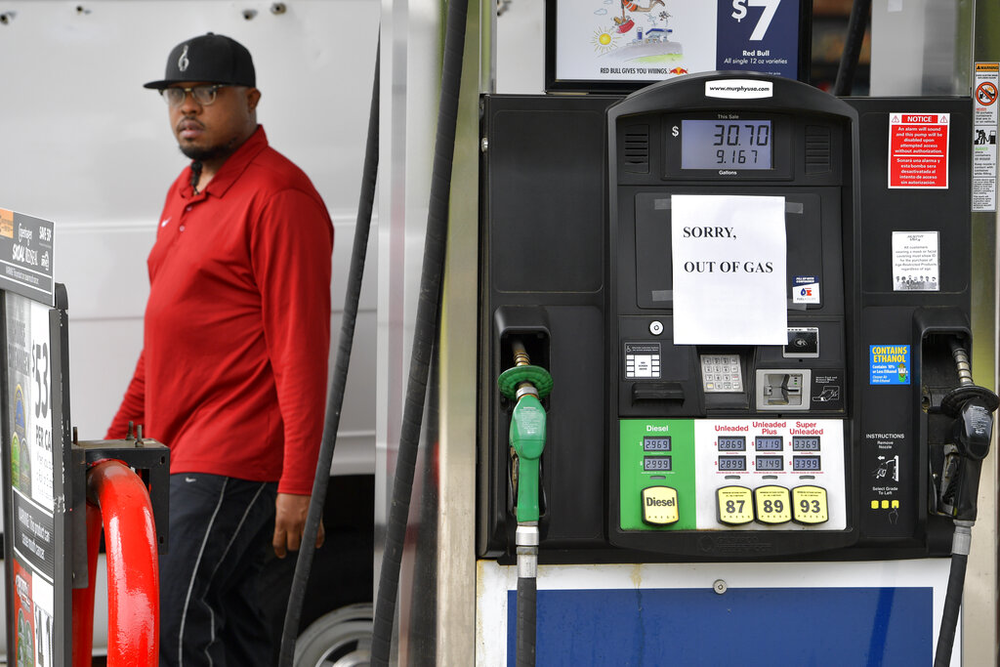
Caption
A man leaves a Murrphy Oil gas station as pumps are seen out of gas, Tuesday, May 11, 2021, in Kennesaw, Ga. Colonial Pipeline, which delivers about 45% of the fuel consumed on the East Coast, halted operations last week after revealing a cyberattack that it said had affected some of its systems.
Credit: Mike Stewart/AP Photo

